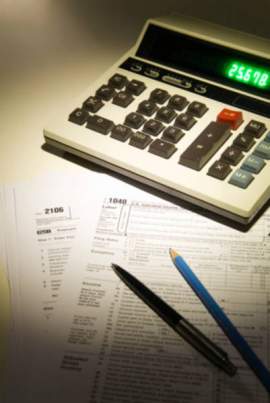
The Facts on Personal Tax

Personal tax in the United States involves federal, state, and local income tax. Every time you receive a pay check from employer you have taxes taken out. These taxes are based on your gross annual income. The federal income tax is a progressive tax with increases in the percentage of taxable income for different levels of income.
The federal tax code for 2011 sets out the personal tax as follows:
INCOME TAX RATE
$0 - $8,500 10%
$8,500 - $34,500 15%
$34,501 - $83,600 25%
$83,601 - $174,000 28%
$174,001 - $379,000 33%
This means that if you make $100,000 a year you will be taxed 10% for the first $8,500; 15% for your second $26,000; 25% for the next $49,000; and 28% for the last $16,400. That means that your total taxable income for that $100,000 will be $21,542.
Even though this is the amount that you will be taxed over the course of the year it does not necessarily mean that it is the amount that the government is entitled to. The federal tax code is riddled with numerous tax exemptions and tax deductions.
Tax deductions are expenses that a tax payer incurs over the course of a tax year that the federal government allows to be deducted from annual income. A tax exemption is when is when you are permitted to reduce your taxable income.
When your are filing your personal tax you can claim exemptions for you, your spouse and your dependent family members. The standard tax exemption is $3,650 per exemption. There are a number of requirements in order to claim a tax exemption. An exemption from your personal tax is essentially a benefit that is bestowed up on the taxpayer for each person in their family who is dependent on that individual.
If you are the head of your household, you are permitted--so long as certain requirements are met--to an exemption for your spouse and your children. This means that if you are the head of you household, are married, and have two children who qualify as dependents then you are eligible for $13,000 in tax exemptions. So, as in the previous example, if your income is $100,000 your income, for tax purposes, will be reduced to $87,000.
In addition to tax exemptions you are permitted tax deductions. You have two options when discussing tax deductions. You can either file a standard tax deduction, which allows a specific deduction from your income based on your specific status, or you can take an itemized deduction which allows you to deduct expenses and items from a list of deductions supplied by the IRS.
There are a variety of ways to reduce your personal tax. This includes tax avoidance, tax shelters and a number of other ways. When you are looking to reduce your personal tax, it is important to discuss your financial portfolio with an accountant or a tax lawyer to help you claim as many deductions and exemptions as possible and reduce your tax burden.



















